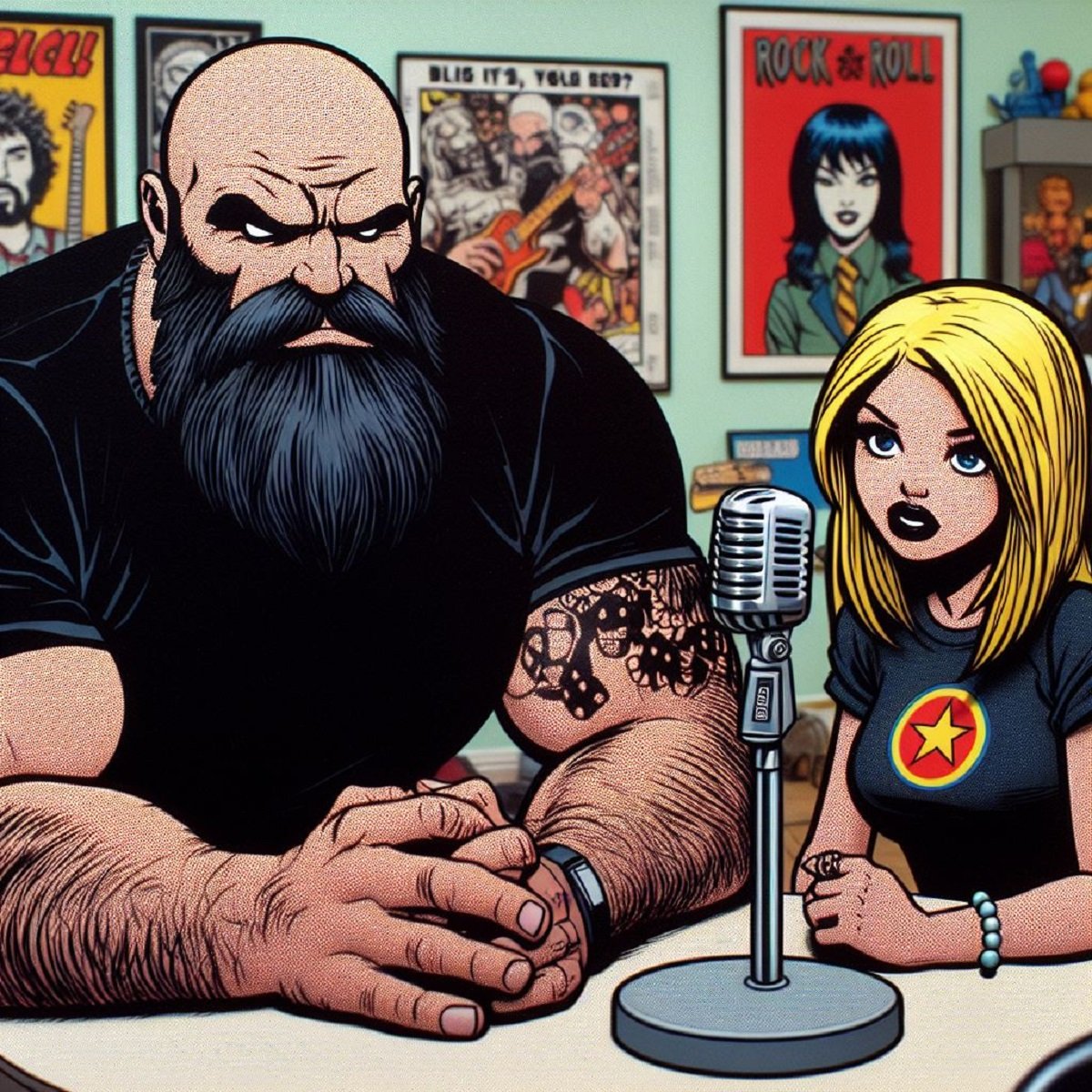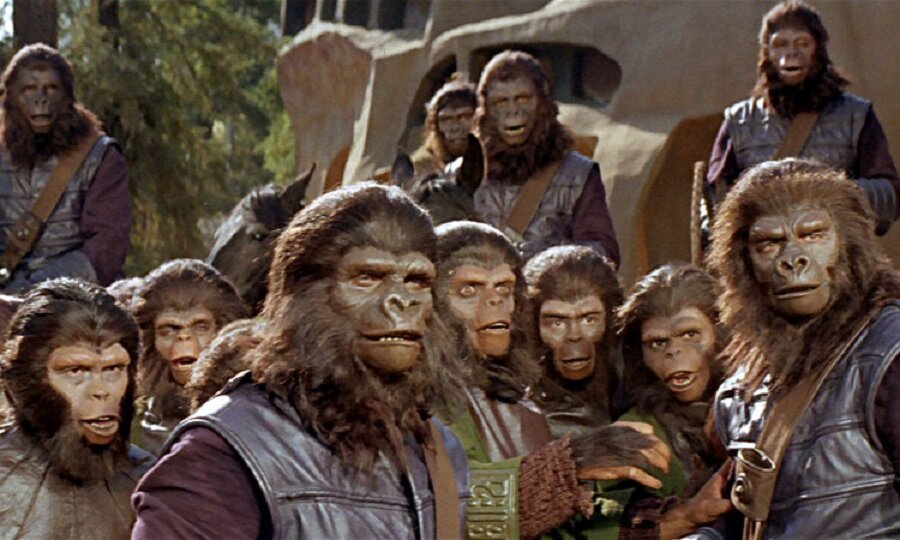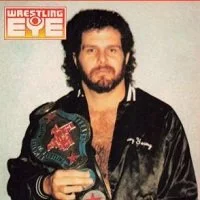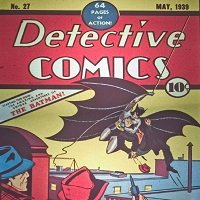Echos Of The Pop: Planet Of The Apes
By: Juan Nunez (Twitter)
Before we had multiple Marvel movies per year, before Star Wars was born, back when Star Trek was only a canceled TV series airing in syndication, there was Planet Of Apes. It was the original big pop culture geek franchise that laid the blueprint for a lot of current pop culture.
The Planet Of The Apes franchise started in 1963 as the sci-fi novel "La Planète des singes" by French author Pierre Boulle. That was adapted into the 1968 film Planet Of The Apes by director Franklin J Schaffner. Mr. Schaffner went on to direct and produce the movie Patton in 1970, which won seven Academy Awards, including best director and best picture. The screenplay for Planet Of The Apes was written by veteran screenwriter Michael Wilson of It's A Wonderful Life (1946) and A Place In The Sun (1951) and by Rod Serling, of The Twilight Zone. Makeup artist John Chambers did the groundbreaking prosthetic makeup for the apes. Together that all-star group of creatives made an unusually sophisticated sci-fi movie for its era that has aged into a timeless classic.
Something of note is that the movie was panned prior to its released due to people making assumptions about its B-movie-like premise. To quote Roger Ebert's 1968 review of the movie: "Until I started reviewing movies I probably wouldn't have gone to see it (Planet Of The Apes) either. And any number of friends have been telling me they've heard it was ‘awful’ -- when, in fact, nobody in Chicago had seen it until Friday and the reviews from other cities have been pretty good." In a pre-geek pop culture world, this was a risky project. The Apes franchise and Star Trek around the same time help lay the early groundwork for taking fun sci-fi from drive-in movie schlock or kids entertainment to mainstream entertainment that anyone could enjoy.
Planet Of The Apes became a hit upon release. It drew $33.4 million at the box office on a $5.8 million budget, making it the 9th highest-grossing movie in 1968. The film also received critical praise. Roger Ebert said "'Planet of the Apes' is much better than I expected it to be. It is quickly paced, completely entertaining, and its philosophical pretensions don't get in the way." He gave it 3 out of 4 stars.
Planet Of The Apes spawned four sequel movies between 1970 and 1973, a live-action TV series in 1974, and a cartoon in 1975. While annual sequels are a common occurrence today, they were unheard of at the time for a mainstream movie property. You'd have to go back to the 1930's-1940's movie serials and B-Movies to find something similar.
Before George Lucas made a fortune off the Star Wars licensing and merchandising rights of Star Wars, the Apes franchise was an early big merchandise mover.
In 1970, Gold Key comics released adaptations of the first two movies. Marvel comics released multiple comic series later in the 1970s in the USA and the UK. The UK market also saw original comics based on Planet of the Apes published by Brown & Watson. Multiple Japanese manga adaptations were published in the late 1960s and 1970s. Including as a part of Monthly Shonen Jump magazine in 1973.
When the Mego Corporation started expanding their toy line to movie and TV franchises, Planet Of The Apes was one of the first released in 1974. They released individual toys as well as full playsets. The success of the Apes toyline led to other franchises such as Star Trek, Happy Days, Wizard Of Oz, the Wonder Woman TV series, the Superman movie franchise, and more.
Power Records released audio adaptations of all the movies in 1974. As well as original stories set in the Apes universe via one full LP and three smaller individual records.
Other Planet Of The Apes collectibles included trading cards, novelizations, candy, stickers, Viewmasters, and more.
In November 1975, the official Planet Of The Apes Fan club was launched in the UK. At its peak, the fan club claimed to have 1200 international members. The Fan club was a collaboration between Marvel Comic's UK division and Television Character Promotions. They published a newsletter that ran features that would interest fans and covered live appearances by Apes characters across the UK in the mid-1970s. This is an example of how geek fandom worked in the days before the internet.
You can see more information and read the original newsletters at Hunter's Planet Of The Apes archives: https://pota.goatley.com/uk-fan-club.html
Over the past 52 years, pop culture references to Planet Of The Apes are far too numerous to list out. From The Carol Burnett Show to SNL to Family Guy. I'll close out this article with one of my favorites, from The Simpsons:
If you found this article interesting consider becoming a Patreon supporter. That is how When It Was Cool keeps our website and podcasts online, plus you get lots of bonus content including extra and extended podcasts, articles, digital comics, ebooks, and much more. Check out our Patreon Page to see what's up!
If you don't want to use Patreon but still want to support When It Was Cool then how about a one time $5 PayPal donation? Thank you!

















































